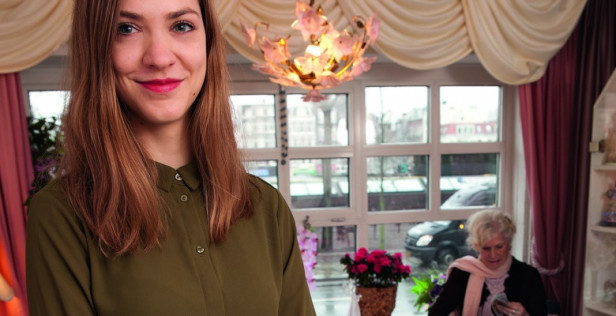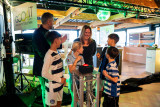How can technology help to unburden informal caregivers? What are the design opportunities?
For more information, please go to:
<http://www.digitallifecentre.nl/projecten/co-care-it>
Oproep: Kent u of bent u een mantelzorger en zou u willen deelnemen aan het onderzoek? Laat het ons weten via l.b.j.bosch [at] hva.nl
What is the goal of the project?
Co-Care-IT focuses on the iterative development of an interactive platform to help mitigate the care burden of informal caregivers. User-Centred Design is central to this project.
Care for independently living people who are in need of long-term care, such as older adults, is often balanced between informal caregivers and professional (formal) care providers. Informal caregivers are partners, family members and friends that provide care as non-professionals. They take a large part of the care burden upon them when their loved one becomes sick or is in need of care. Due to recent changes in the Dutch health care system and the growing ageing population, there is an increasing pressure on informal caregivers to help provide the needed care. The opportunity to be there for their loved ones is an aspect of caregiving that is often experienced as very positive and rewarding, but providing intensive care for a long period of time can also be too demanding in the way that informal caregivers become overburdened.
What is the result of the project?
Currently, information and communication technologies (ICT) are increasingly being explored as possible solutions for health care related issues. In the context of informal care however, these systems are not always effective, accessible or wanted. Co-Care-IT aims to study how technological applications can truly contribute to unburdening informal caregivers. For this purpose, current ICT solutions are being investigated to identify which aspects of these systems are most effective and suitable in practice. Potential new solutions for aiding informal caregivers are explored and developed through extensive research into the needs of informal caregivers and by applying user-centred design approaches. For example, the aim is to deploy technology for not only identifying the aspects of care giving that are perceived as most stressful or demanding, but also which aspects are positive. In this way, this research focuses on the actual needs of the informal caregivers and on emphasizing the positive aspects of caring for their loved one.
Who initiated the project and which organizations are involved?
Lilian Bosch (PhD candidate), dr Marije Kanis (project leader) and prof dr Ben Kröse are actively working on this project.
The project is funded through the Centre of Expertise program “Urban Vitality” of the Amsterdam University of Applied Sciences (HvA) and FIT (funded by TKI of the Dutch Ministry of Economic affairs). It is a collaboration between HvA's Digital life Centre, the Community Care research group (Rick Kwekkeboom) and Duke University (Julia Dunn & Kearsley Stewart).
What is the next step?
The next step is to built an online platform "We care" that supports informal caregivers in finding and creating their own (DIY) solutions for better care and increasing their own wellbeing.
What can other cities learn from your project?
Our investigations provide a deeper understanding of the key opportunities in the design of technologies to support the caregiver, namely (1) making caregivers better informed and more aware of existing solutions, (2) Increasing awareness of the caregivers' own wellness, (3) cherishing the valuable, positive moments of caregiving (e.g. by capturing precious moments), and (4) Encouraging meaningful social interactions among caregivers for strengthening social ties.





